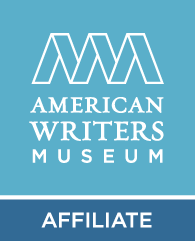[vc_row][vc_column][vc_column_text]
There aren’t very many works of poetry on the Banned Books List, and I think that’s a shame! I mean, Shel Silverstein made the list, and Gwendolyn Brooks, and Allen Ginsburg’s “Howl.” Alice in Wonderland has been banned, and John Greenleaf Whittier infamously threw his copy of Walt Whitman’s poetry collection Leaves of Grass in the fire (for which he has been karmically banned from my classroom), but that’s about it, and that’s just wrong! Poets, perhaps more than writers of prose, challenge our norms and sensibilities. They swear. They write about sex, even, so what’s the deal? Here’s the deal. Poetry doesn’t show up on the thought police’s radar because it simply isn’t read as much as prose. Yes, Billy Collins did a TED talk, but we’re way past the days of Longfellow and Frost, when poets were exalted figures. And, sadly, poetry is not taught in schools very often, mostly because teachers have to focus on material that standardized test makers have deemed important, so while I have this soapbox on the second floor of the Kurt Vonnegut Museum and Library (KVML), I’m saying, “Come on, folks, let’s all read more poetry!!!”
I taught a lesson from “prison” yesterday. With the help of the friendly librarians at Tipton High School and the tech-savvy folks at KVML, we set up a video conference with one of my classes. I taught a lesson on Etheridge Knight, mostly because he is my favorite local poet. And because I’m spending the week across the street from the Madam Walker Legacy Center on Indiana Avenue, the heart of the African-American cultural movement in Indianapolis. Mostly, though, it was an attempt to get Knight on the Banned Books List, to get people to read his poems widely enough to awaken the ire of the censors (so we can then fight against them).
Knight was one of the most prominent figures in the Black Arts Movement of the 1960’s and 70’s. He began writing poetry while an inmate in the Indiana prison system under the guidance of poets such as Gwendolyn Brooks. His poetry is sometimes edgy, sometimes angry, sometimes funny, and always exquisitely human.
I ran across Knight’s work in the 1990’s when I received a Lilly Grant to study contemporary Indiana writers. I’d been interested in local literature since my grandfather, who was educated to the eighth grade in a one-room schoolhouse near Battleground, Indiana, introduced me to poetry by reciting James Whitcomb Riley poems from memory. Many years later, that affection for Riley led me to apply to the Lilly Endowment to study Indiana literature, and in the course of that summer, I read a lot of great living Indiana writers – Scott Sanders, James Alexander Thom, Jared Carter, Susan Neville, and Michael Martone, to name a few—but it was the poems of Etheridge Knight that struck home, that got in deepest. I used to drive around in my truck listening to Knight speak his poems on a cassette tape. I read his poems in class on probably too many occasions. I visited his grave at Crown Hill Cemetery.
But here’s the thing: I couldn’t be more different than Knight. I’m a relatively boring white guy who has lived in small towns in Indiana my entire life. Knight’s poems about prison and addiction and being both feared and oppressed as a black man are completely outside my experience. But here’s the other thing: his poems resonate with me, not on a cultural level but on a personal one. There is a line in his poem “A WASP Woman Visits a Black Junkie in Prison” that captures his humanity perfectly. In this wonderful poem, Knight is surprised by a call to the visitation room, where he finds a “prim and proper-blooded lady.” He fights his suspicion and cynicism and accepts this awkward meeting.
After the seating
And the greeting, they fished for a denominator,
Common or uncommon;
And could only summon up the fact that both were human.
“Be at ease, man!
Try to please, man!— the lady is as lost as you:”
In his poems, no matter what he’s talking about— struggles with addiction, the debasement of prison life, racism and the frustrating struggle for equality, love and the loss of love—he speaks to the humanness in all of us.
I sneak as much poetry into my classes as I can. Yes, I know, poetry won’t help students on the SAT or in a job interview, but, damn it, education is not solely for the practical; it’s not just about becoming a competent earner. It’s also about being human, about navigating the complexities of human existence and interaction. Literature tries to help, and, it seems to me, poetry is a really important part of this. Among other gifts, poetry offers us portable wisdom. Novels are wonderful, but it’s hard to carry an entire book around in your head. But a poem! You can carry poems around with you, like the buckeyes my dad kept in his pocket for good luck.
For instance, in the moments after my wife, Karen, and I had our first son, after the heartbreak of several years of trying, a line from Knight’s “On the Birth of a Black Baby Boy” came bubbling up into my throat—“You be a loonngg time coming, boy—but you’re welcome here.”
So read a poem today—a funny poem or a sad poem or an inspiring poem, or, maybe, if you’re feeling it, a decadent poem!
[/vc_column_text][/vc_column][/vc_row]



